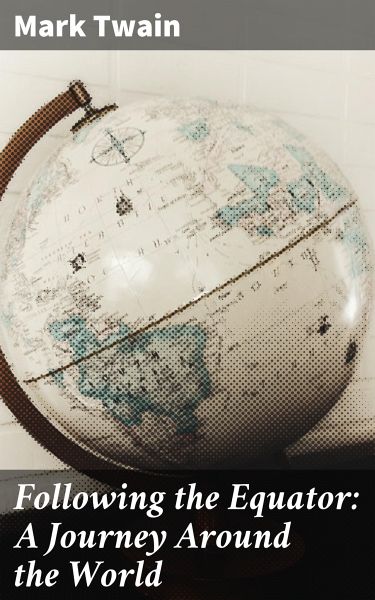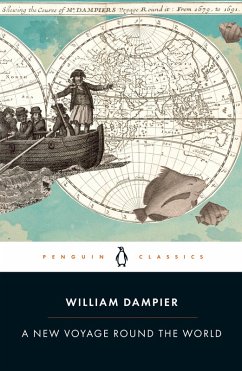
Following the Equator: A Journey Around the World (eBook, ePUB)
Enriched edition. An Epic Journey Through Diverse Cultures and Lands
Kommentar: Northam, Vanessa / Redaktion: Good Press
Versandkostenfrei!
Sofort per Download lieferbar
0,49 €
inkl. MwSt.
Weitere Ausgaben:

PAYBACK Punkte
0 °P sammeln!
In "Following the Equator: A Journey Around the World," Mark Twain embarks on a captivating travelogue that combines sharp wit, keen observation, and social commentary. Written in 1897, the book chronicles Twain's global adventures across diverse locales, from the British Empire to the South Seas, reflecting his characteristic blend of humor and incisive critique of imperialism and societal norms. The literary style, marked by Twain's signature vernacular and vivid descriptions, immerses readers in the sights and sounds of the world, while exposing the absurdities and contradictions of contemp...
In "Following the Equator: A Journey Around the World," Mark Twain embarks on a captivating travelogue that combines sharp wit, keen observation, and social commentary. Written in 1897, the book chronicles Twain's global adventures across diverse locales, from the British Empire to the South Seas, reflecting his characteristic blend of humor and incisive critique of imperialism and societal norms. The literary style, marked by Twain's signature vernacular and vivid descriptions, immerses readers in the sights and sounds of the world, while exposing the absurdities and contradictions of contemporary civilization at the turn of the 20th century. Mark Twain, one of America's most celebrated literary figures, was propelled to write this travel narrative during a financially trying period, prompted by his desire for both adventure and economic relief. Known for his earlier works such as "The Adventures of Tom Sawyer," Twain's experiences in travel not only equipped him with rich material for storytelling but also shaped his perspective on humanity. His reflections during this journey reveal a deep understanding of cultural differences and highlight the universal flaws that bind people together. For readers seeking an engaging blend of travel narrative and incisive social critique, "Following the Equator" is an essential read. Twain's unique voice and perceptive observations invite audiences to reflect on both historical and contemporary issues, making this travelogue a timely exploration of the world through the eyes of one of literature's greats. In this enriched edition, we have carefully created added value for your reading experience: - A succinct Introduction situates the work's timeless appeal and themes. - The Synopsis outlines the central plot, highlighting key developments without spoiling critical twists. - A detailed Historical Context immerses you in the era's events and influences that shaped the writing. - An Author Biography reveals milestones in the author's life, illuminating the personal insights behind the text. - A thorough Analysis dissects symbols, motifs, and character arcs to unearth underlying meanings. - Reflection questions prompt you to engage personally with the work's messages, connecting them to modern life. - Hand-picked Memorable Quotes shine a spotlight on moments of literary brilliance. - Interactive footnotes clarify unusual references, historical allusions, and archaic phrases for an effortless, more informed read.
Dieser Download kann aus rechtlichen Gründen nur mit Rechnungsadresse in A, B, BG, CY, CZ, D, DK, EW, E, FIN, F, GR, H, IRL, I, LT, L, LR, M, NL, PL, P, R, S, SLO, SK ausgeliefert werden.














